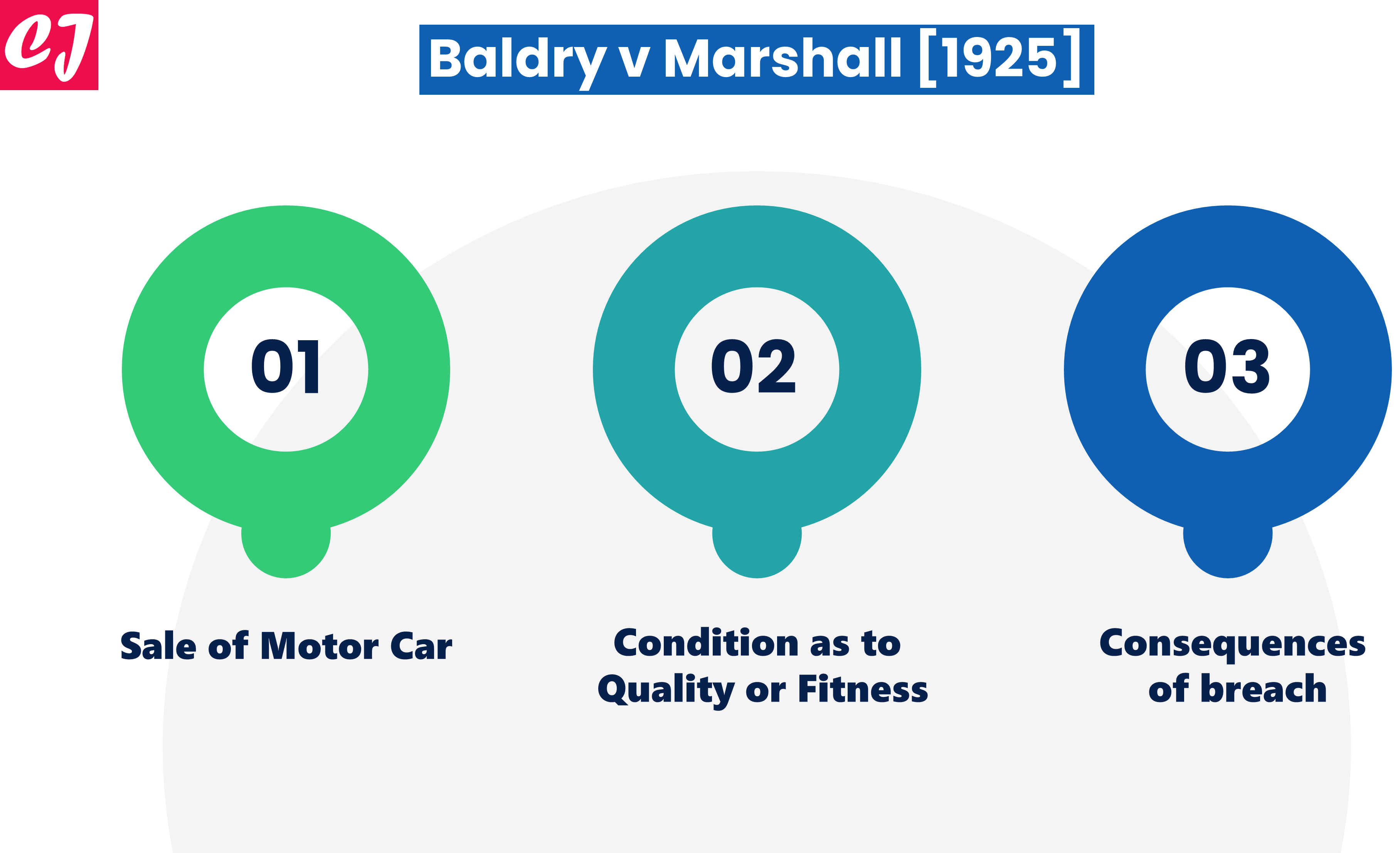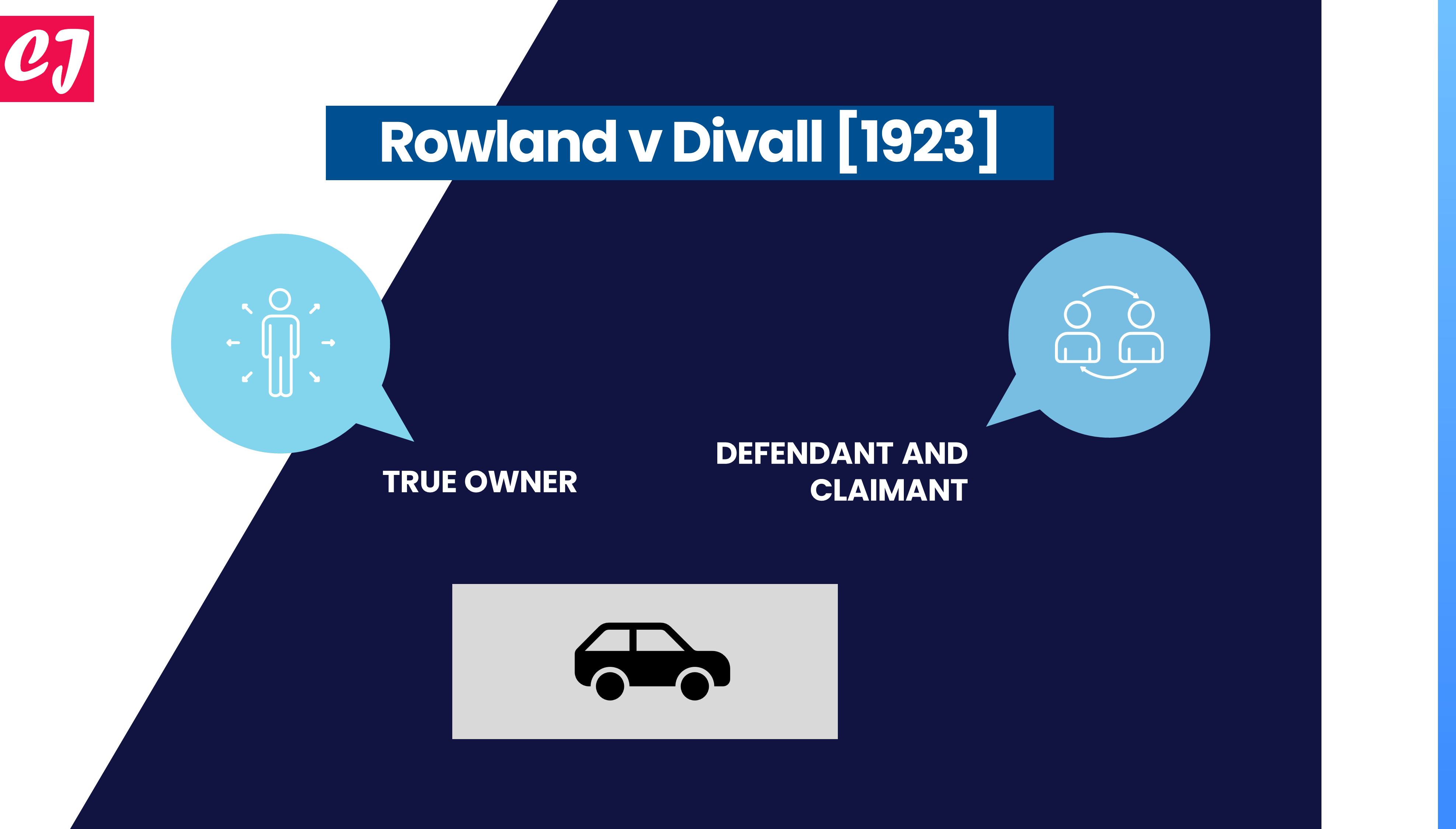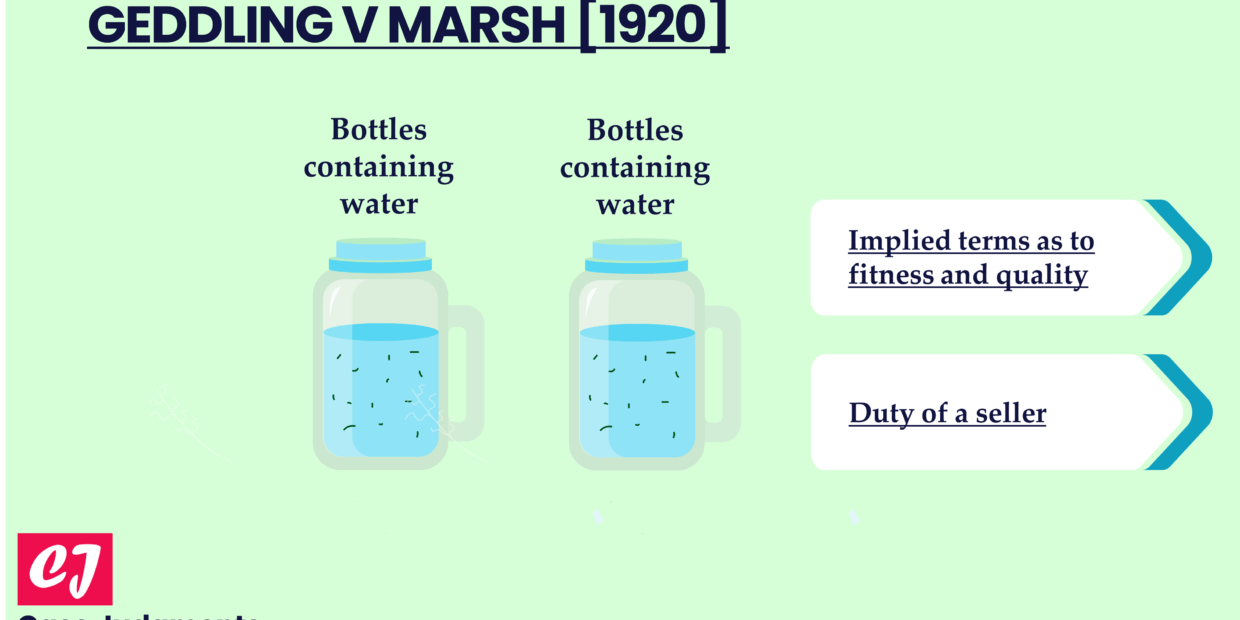Case name & citation: Varley v Whipp [1900] 1 QB 513 Year of the case: 1900 Jurisdiction: England and Wales Area of law: Sale by…
Case name & citation: Baldry v Marshall [1925] 1 KB 260 What is the case about? This is a famous case concerning the implied condition…
Case name & citation: Rowland v Divall [1923] 2 KB 500 CA Rowland v Divall is a case throwing light on the rights of a…
Case name & citation: Beale v Taylor [1967] 1 WLR 1193; [1967] 3 All ER 253 Jurisdiction: England and Wales Year of the case: 1967…
L’Estrange v Graucob [1934] is a famous contract law case that is known for laying down the rule that the contents of a signed contract…
Case name & citation: Geddling v Marsh. (1920) 1 K.B. 668 The concerned Court: King’s Bench Year of the case: 1920 Area of law: Implied…
Case name & citation: Poussard v Spiers and Pond (1876) 1 QBD 410 What is the case about? This is a famous contract law case…
Case name & citation: Bettini v Gye (1876) 1 QBD 183 What is the case about? In the landmark case of Bettini v Gye (1876),…
Case name & citation: Crowther v Shannon Motor Co [1975] 1 WLR 30; [1975] 1 All ER 139 What is the case about? Crowther v…
Case name & citation: Frost v Aylesbury Dairy Co [1905] 1 KB 608 Court and jurisdiction: Court of Appeal, England and Wales Year of the…









